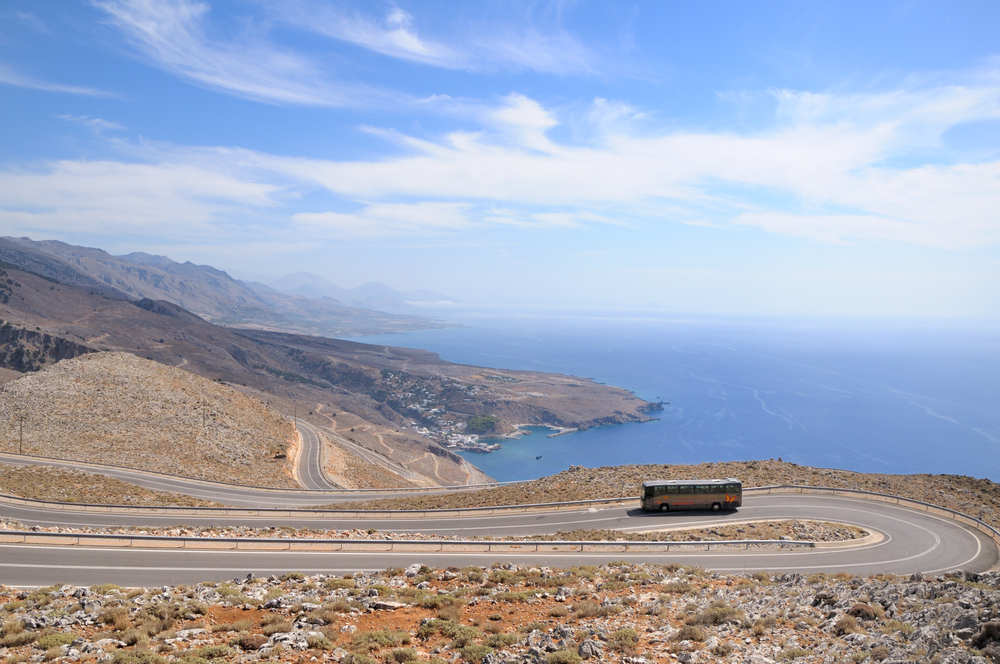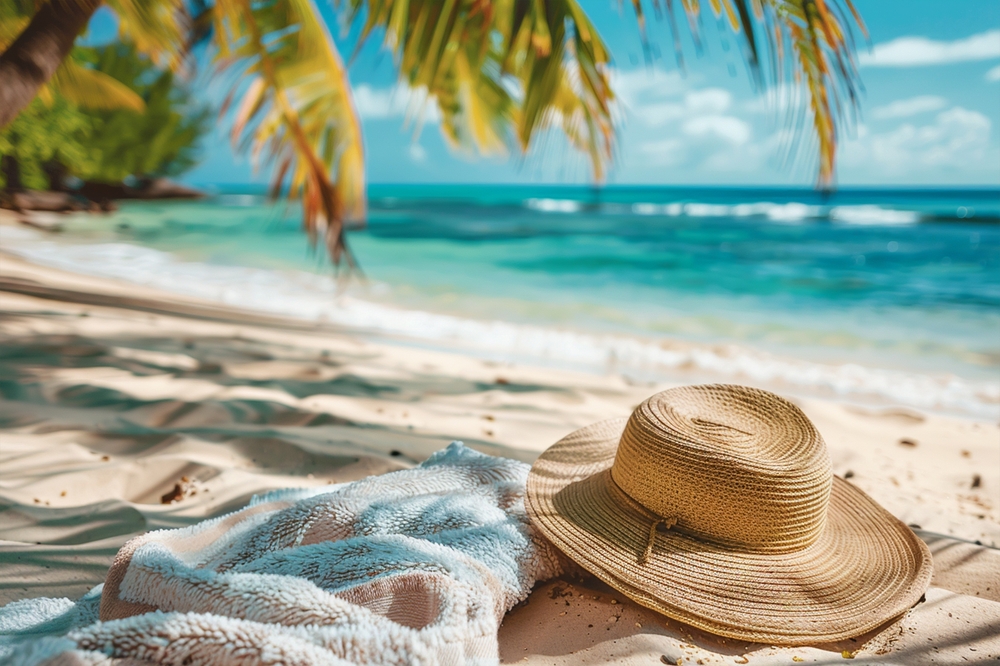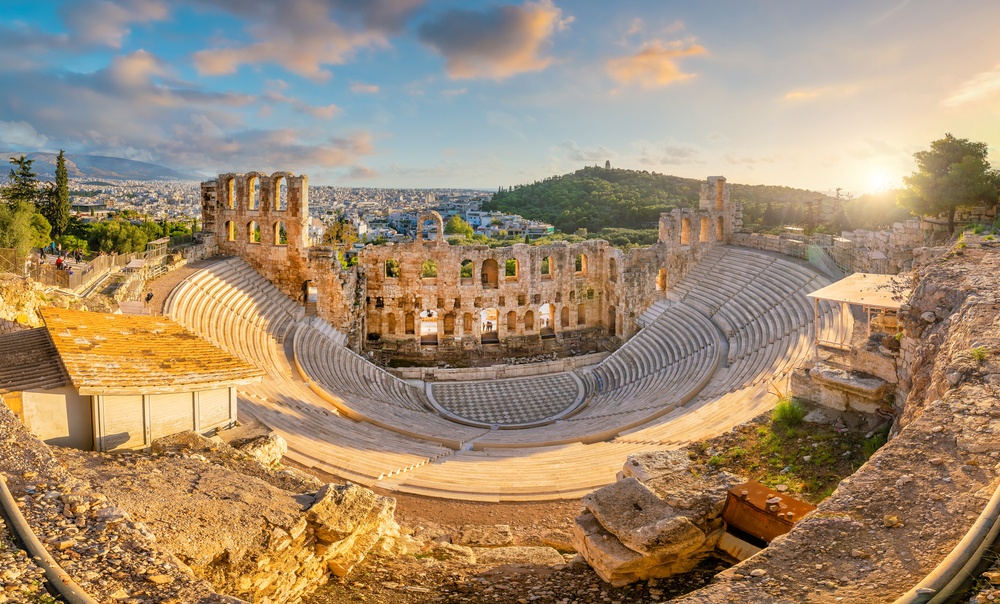So you’re heading to Greece? Lucky you! But before you start dreaming about those white-sand beaches and ancient ruins, let’s chat about something super important: sustainable tourism.
You see, Greece isn’t just a holiday destination; it’s a living, breathing country with some real environmental challenges. From water scarcity on the islands to the impact of over-tourism in popular spots, Greece is feeling the pinch. But here’s the good news: the country is fighting back with some cool green initiatives. And guess what? You can be part of the solution!
By choosing to travel sustainably, you’re not just being a responsible tourist; you’re helping preserve the very things that make Greece so special. Ready to learn how? Let’s go!
Sustainable Transportation
Alright, let’s talk about getting around. Sure, those little mopeds look fun, but there are way cooler (and greener) ways to explore Greece.

First up, public transport. Greek cities like Athens have fantastic metro systems that’ll zip you around like a local. Buses and trains are great for longer trips – plus, you get to see the countryside and maybe chat with some friendly Greeks.
Island hopping? Ferries are your best friend. They’re not just eco-friendly; they’re an experience in themselves. Grab a seat on deck, feel the sea breeze, and watch the islands appear on the horizon. It’s pure magic!
If you need to rent a vehicle, look for electric or hybrid options. More and more places are offering these, especially on the islands. And speaking of islands, many are perfect for cycling or walking. Imagine pedaling through olive groves or strolling down ancient paths – that’s the real Greece, folks!
Read: Sustainable Travel in Greece: How to Visit Responsibly
Eco-Friendly Accommodation Choices
Where you lay your head at night can make a big difference to your carbon footprint. Luckily, Greece has some fantastic eco-friendly options.
Keep an eye out for certified green hotels. These places go the extra mile with things like solar power, water recycling, and organic gardens. But don’t stop there – locally-owned guesthouses and eco-lodges are gems. Not only are they often super sustainable, but your money goes straight into the local community. Win-win!
Feeling adventurous? Try camping or glamping. Greece has some stunning campsites, often in breathtaking locations. Just remember to leave no trace!
Wherever you stay, do your bit. Reuse towels, turn off the AC when you’re out, and be mindful of water use. Small actions add up, especially when we’re all doing them!
Responsible Beach Behavior

Those famous Greek beaches! Golden sand, crystal-clear water – let’s keep them that way, shall we?
Rule number one: whatever you bring to the beach goes back with you. That includes cigarette butts, folks! Many beaches have recycling bins, so sort your trash if you can.
Now, about that sunscreen. I know, I know, nobody wants to look like a lobster on vacation. But traditional sunscreens can be harmful to marine life. Look for reef-safe options – your skin will thank you, and so will the fish!
Speaking of marine life, give them space. Those sea turtles nesting on the beach? Admire from a distance. Tempted to take a pretty shell or pebble home? Resist! Leave them for others to enjoy.
Would you want to be a real beach hero? Join a beach clean-up! Many local organizations run these, and it’s a great way to give back (and maybe make some new friends).
Sustainable Dining and Food Choices
Okay, food lovers, this one’s for you. Greek cuisine is amazing, and eating sustainably makes it even better!
Skip the big chains and head for local, family-owned tavernas. The food’s usually fresher, more authentic, and your money supports local families. Plus, the owners often have the best stories!
When ordering, go for dishes with locally-sourced and seasonal ingredients. Not sure what’s in season? Just ask! Greeks are usually happy to chat about food.
Try to finish what’s on your plate – food waste is a big issue globally. If you can’t finish, don’t be shy about asking for a doggy bag.
And please, ditch the plastic. Carry a reusable water bottle and say no to plastic straws. Some places even offer discounts if you bring your own container for takeaway. How cool is that?
Read: What Not To Do When Booking Monastery Tours in Meteora
Water Conservation
Here’s something many tourists don’t realize: water is precious in Greece, especially on the islands. Some islands even have to import fresh water!
So, how can you help? Take shorter showers, turn off the tap while brushing your teeth, and reuse towels if possible. Trust me, you’ll still be plenty clean for those beach selfies.
Carrying a refillable water bottle is a game-changer. Greek tap water is generally safe to drink in cities, but do check locally. Many places have water refill stations – use them!
And when choosing where to stay or eat, support businesses that are water-wise. Some hotels have water recycling systems or use drought-resistant plants in their gardens. Every drop counts!
Responsible Cultural Tourism

Greece isn’t just about beaches – it’s a cultural powerhouse! But with great culture comes great responsibility (that’s how the saying goes, right?).
First things first: respect local customs. Greece is generally pretty laid-back, but there are a few things to keep in mind. Dress modestly when visiting churches, and ask before taking photos of people.
Support authentic cultural experiences. Take a traditional cooking class, attend a local festival, or visit a small museum. These experiences are often more rewarding than ticking off top 10 lists.
Speaking of which, consider venturing off the beaten path. Sure, the Acropolis is amazing, but have you heard of Delphi? Or Meteora? Greece is full of lesser-known spots that are just as incredible – and often less crowded.
And when you do visit popular sites, be a responsible visitor. Don’t climb on ancient ruins, stay on marked paths, and keep your voice down in sacred spaces. Remember, these places have stood for thousands of years – let’s make sure they stand for thousands more!
Shopping Sustainably
Who doesn’t love a good souvenir? But let’s make sure your mementos are as good for Greece as they are for your Instagram.
Look for locally-made products. Not only are they usually higher quality, but they also support local artisans. Plus, they tell a better story than mass-produced trinkets.
Be wary of products made from endangered species, like coral jewelry or turtle shell items. Not only are these often illegal, but they’re also harmful to Greece’s delicate ecosystems.
Bring a reusable shopping bag with you. It’s an easy way to cut down on plastic, and some of them fold up tiny enough to fit in your pocket.
And keep an eye out for eco-friendly businesses. More and more Greek entrepreneurs are creating sustainable products – from organic cosmetics to upcycled fashion. Supporting them helps grow Greece’s green economy.
Eco-Friendly Activities and Tours
Time to have some fun – the eco-friendly way!
When booking tours, look for operators with sustainable practices. The best ones will have policies on waste management, respecting wildlife, and supporting local communities.
Want to give back while having fun? Consider joining a conservation activity. You could help monitor sea turtles, participate in a reforestation project, or assist with archaeological digs.
If you’re into hiking or camping, stick to marked trails and designated camping areas. Take only photos, leave only footprints, as they say.
And for you water babies out there, choose eco-friendly options. Kayaking, snorkeling, and stand-up paddleboarding are great low-impact ways to enjoy Greece’s beautiful waters.
Remember, being eco-friendly doesn’t mean sacrificing fun. In fact, these sustainable choices often lead to the most authentic and memorable experiences. So go ahead, dive in (responsibly), and enjoy all the wonders Greece has to offer!
Read: The Worst Times to Visit Meteora: Avoid These Crowded Seasons
Wildlife and Biodiversity Protection

Greece is teeming with amazing wildlife, from playful dolphins to shy wildcats. But remember, we’re guests in their home, so let’s act like it!
First rule of thumb: keep your distance. I know it’s tempting to get close for that perfect shot, but wildlife needs its space. Use those zoom lenses, please!
If you’re lucky enough to spot sea turtles nesting (how cool is that?), remember it’s a look-but-don’t-touch situation. Same goes for monk seals lounging on beaches. They’re rare and protected, so give them plenty of room.
Want to support wildlife? Consider joining a conservation tour. There are great programs where you can help monitor sea turtle nests or assist with bird counts. It’s a fantastic way to see wildlife up close while actually helping to protect it.
And please, steer clear of any activities that exploit animals. Riding donkeys up steep steps? Not cool. Choose eco-friendly alternatives that respect animals and their habitats.
Reducing Carbon Footprint
Getting to Greece often means a long flight. But don’t worry—you can still be eco-friendly!
Look into carbon offset programs for your flights. Many airlines offer these now, and it’s an easy way to balance out your travel emissions.
Once you’re in Greece, choose low-impact transport options. Trains, buses, and ferries are not just eco-friendly, they’re also great for soaking in the scenery and meeting locals.
In your accommodation, be an energy-saving superstar. Turn off lights and AC when you’re out, use natural ventilation when possible, and take the stairs instead of the elevator. Small actions add up!
Keep an eye out for renewable energy initiatives to support. Some islands are leading the way in green energy – Tilos, for example, aims to be 100% powered by wind and solar. How’s that for Greek innovation?
Waste Management and Recycling
Okay, let’s talk trash – or rather, how to reduce it!
Greece has been upping its recycling game, but it can be a bit different from what you’re used to. Look for blue bins for paper and cardboard, yellow for plastic and metal, and green or blue bell-shaped bins for glass.
When you’re out and about, carry a small bag for your trash if you can’t find a bin. It’s a simple habit that can make a big difference, especially on beaches or hiking trails.
Try to reduce your waste as you travel. Opt for experiences over souvenirs, choose products with less packaging, and always have your reusable water bottle handy.
Want to go the extra mile? Join a local clean-up event. It’s a great way to give back to the places you’re enjoying and meet like-minded travelers and locals.
Supporting Local Communities
Want to really experience Greece? Explore local communities!
Look for community-based tourism initiatives. These could be homestays, local-led tours, or traditional craft workshops. They’re often more authentic experiences and your money goes directly to local people.
Learn a few Greek phrases. Even just “Kalimera” (good morning) and “Efharisto” (thank you) can go a long way. Greeks really appreciate the effort, and you might make some new friends!
Respect local livelihoods. Buy from local markets, eat at family-run tavernas, and use local guides. It all helps to keep traditional ways of life thriving.
Read: Natural Disaster Alert Issued for Greece Amid Ongoing Wildfires
Eco-Friendly Island Hopping
Island hopping is a Greek rite of passage, but let’s do it the green way!
Consider visiting some of the lesser-known islands. Places like Ikaria, Lemnos, or Samothraki are just as beautiful as the famous spots, but with fewer crowds and a more authentic vibe.
Each island has its own environmental challenges, so stay informed. Some islands are leading the way in sustainability – Tilos is almost 100% powered by renewable energy, while Paros is aiming to be the first plastic-waste-free Mediterranean island.
If you’re into sailing or yachting, choose operators with strong environmental policies. Look for those using eco-friendly cleaning products, practicing responsible waste management, and respecting marine protected areas.
Technology for Eco-Friendly Travel
Let’s get tech-savvy with our eco-travel!
There are some great apps out there to help you travel sustainably in Greece. Check out “Green Greece” for eco-friendly hotels and restaurants, or “Clean Blue Paros” if you’re visiting Paros.
Ditch the paper and go digital where possible. Use e-tickets for ferries and trains, download city maps to your phone, and opt for digital guides instead of printed books.
Many hotels now offer smart room controls to help save energy. Use them! And don’t forget to turn off your data roaming when you don’t need it – it’s a sneaky energy drain.
Use your social media powers for good! Share your eco-friendly travel tips and experiences. You might inspire others to follow in your green footsteps!
Educating Others and Spreading Awareness
You’re doing great with all these eco-friendly practices – now let’s spread the word!
Share your sustainable travel experiences on social media. That beautiful beach you helped clean up? Post it! The amazing local eco-lodge you stayed in? Give them a shoutout!
Encourage your fellow travelers to join in. If you’re on a tour, gently remind others about responsible practices. Most people want to do the right thing – they might just need a little nudge.
Give feedback to businesses about their environmental practices. Praise the good, suggest improvements for the not-so-good. Your voice as a customer matters.
And remember, the eco-friendly habits you’ve picked up in Greece? Keep them going when you get home! You’re not just a sustainable traveler now – you’re a sustainable citizen of the world.






